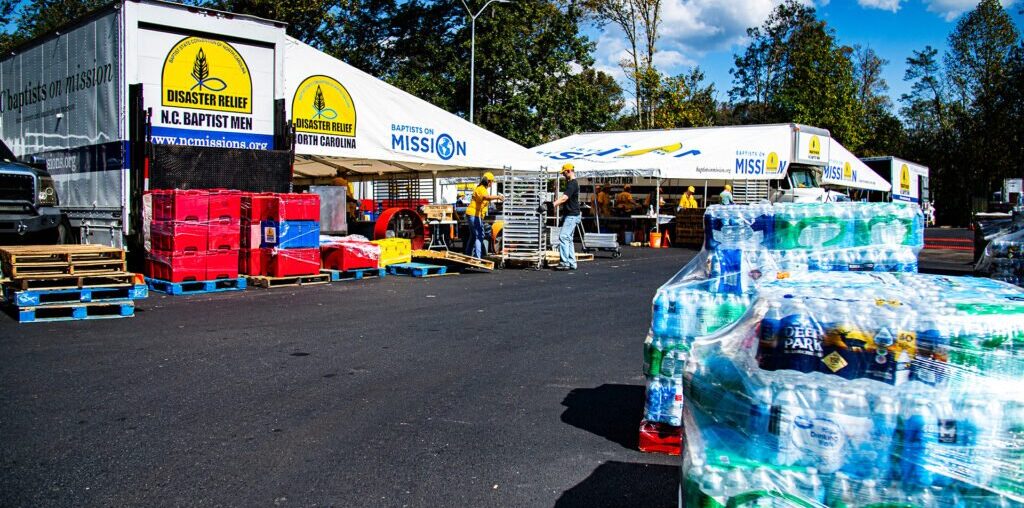
NASHVILLE — Hurricane Katrina’s destruction in 2005 to New Orleans and surrounding areas prompted a yearslong response by Southern Baptist churches and Disaster Relief personnel, with volunteer recruitment for the latter spiking up to 80,000.
Coy Webb, director for Send Relief Crisis Response, wouldn’t be surprised to see something similar for the damage from hurricanes Helene and Milton.
“We’re at around 40,000 trained Southern Baptist Disaster Relief volunteers, which has been pretty consistent for most of our history,” he told Baptist Press. “Still, I expect to see a spike in the number of those wanting to help.”
The death toll from Helene has crossed 250, with fatalities recorded in North Carolina, South Carolina, Georgia, Florida, Tennessee and Virginia. CNN reported 23 deaths because of Milton. Both brought winds and widespread flooding, with North Carolina Governor Roy Cooper saying at a news conference that entire communities “were wiped off the map.”
Send Relief Crisis Response supports disaster relief teams, which is otherwise undertaken and coordinated through state conventions.
As of Oct. 14, for Helene response alone, Send Relief is reporting 96 professions of faith in Jesus Christ, almost 726,000 meals served, nearly 127,000 volunteer hours and 1,361 job requests completed.
Calls for more volunteers have come from numerous states in recent weeks, including Tennessee, Florida, South Carolina, and Texas. That includes extra training sessions like those in Alabama and Kentucky. A minimal level of Disaster Relief training is established among all state conventions.
States like Tennessee and North Carolina urged groups to avoid self-deploying or donating materials goods.
Those efforts, well-meaning as they may be, often occur before communities are safe and public officials have accurately assessed needs. They can also tax local infrastructure – such as housing and food availability – that is already stressed.
Certified Disaster Relief volunteers have been trained and received background checks, said Webb.
“We’re starting to talk with leaders on when church groups can be more able to deploy to those areas,” said Webb, who led Kentucky Baptist Disaster Relief for more than 12 years before his current position. “We’re still discussing the specific needs, but there will be plenty of rebuilding opportunities.”

